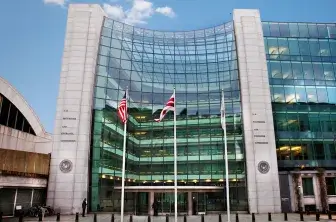Strategy 2: Engage and Educate
Support Concrete Action

Reducing emissions will require cooperation from all sectors, public and private. By celebrating the successes of organizations that take meaningful steps to reduce emissions, the country can encourage others to follow. However, climate pledges must have accountability, with public disclosures of progress.
More recommendations
As organizations and governments reduce emissions, public communication about their specific actions can build accountability and inspire others to follow their example. This public communication often takes the form of climate action plans, which detail current emissions and strategies for emissions reduction and improving climate resiliency. Existing initiatives such as the Global Covenant of Mayors for Climate and Energy have inspired the formation of new climate action plans.[i]
While celebrating climate action can pressure other corporations to act themselves, these actions must include timelines, monitoring, and accountability. Tools, training, and procedures, such as those provided by the Greenhouse Gas Protocol, currently exist to help corporations and governments quantify and manage their emissions and allow for more accurate carbon footprint disclosure.[ii] Organizations such as Stand.earth and 350.org also track and make publicly available records of these commitments in the Global Fossil Fuel Divestment Commitments Database to increase accountability.[iii]
[i] See Global Covenant of Mayors for Climate and Energy, https://www.globalcovenantofmayors.org/.
[ii] See Greenhouse Gas Protocol, https://ghgprotocol.org/.
[iii] See Global Fossil Fuel Divestment Commitments Database, https://divestmentdatabase.org/.




